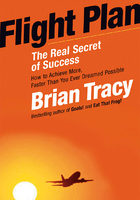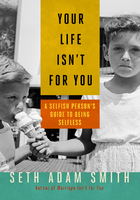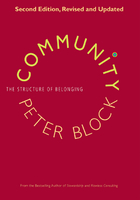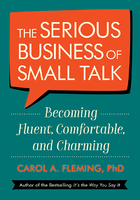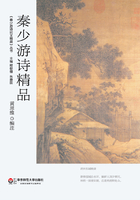Green Muslims
I was inspired to write this book after reflecting on my own Green Deen and meeting other Green Muslims who are living the six principles of a Green Deen. I sought out Muslims who are committed to being stewards of the Earth (khalifah), who understand the Oneness of God and His creation (tawhid), who look for signs of Allah (ayat) in everything around them, who move toward justice (adl), who seek to protect the delicate balance of the natural world (mizan), and who honor our sacred trust with God to protect the planet (amana). Happily, what I discovered is that Muslims are involved in every aspect of the stewardship of the Earth.
Stewardship of the Earth comes in many forms. Green Muslims like Aziz Siddiqi of Houston, Texas, are actively involved in environmental policy. Others, like Sarah Sayeed of the Bronx, New York City, are Green Muslims who ensure environmental justice by working with the interfaith environmental community. While this whole book reflects the active involvement of Muslims in the environmental movement, this chapter focuses on some distinct and inspirational efforts, including the famous DC Green Muslims in our nation's capital.
The Color Green
Muslims have a personal connection to the color green. Color is a refraction of light. In Islam, light is the substance of creation. Somewhere, in the farthest reaches of the universe, Allah is creating from pure light. Green is an aspect of that light and is reflected all over the world. The favorite color of the Prophet Muhammad (peace be upon him) was green: “Among the colours, green was liked the most, as it is the colour of the clothing in Jannah (paradise).”[1]
Allah paints his ayats (signs of nature) in a tapestry of green all over the world. He does so from the lushness of Muir Woods in northern California to the evergreens and ferns of the East as they welcome the flowers after spring rains. Green is the color of the Waipio Valley in the heart of the Big Island, Hawaii. In this valley, you can dip, drink, and make ablution (wudu) in freshwater streams surrounded by green. Green are the mountainous ridges of the Rockies, covered with ferns that host the snow in winter. Green is the color of life on all corners of the planet. And, yes, people can be green too.
Are You a Green Muslim?
Your own family might be the best place to look for signs of a Green Deen in action. That's certainly where I look first. I come from a family in which our father taught us that the Earth is a mosque. My father spends much time in the out- doors being absorbed by the natural world. Connecting to nature is how my father connects with God.
One morning while writing this book, I received the following e-mail from my dad. He had just arrived at a remote section of Maine for one of his customary sojourns into the natural world. His goal was to be immersed in the signs of Allah and to pray and worship the Creator while surrounded by those signs, free from distraction.
Alhamdullilah [All Praise Due to Allah], I arrived in Maine safely. Tonite I am spending the night at Sebago Lake (car camping). Tomorrow I will be traveling north along the coast to the ocean. Not sure how many nights I will spend there. Will figure that out when I get there. I am expecting Wednesday to be a rainy day, but although it's partially cloudy, the weather is nice. Sebago Lake is a huge lake—I even heard they have a navy SEALs training base somewhere near here. I probably won't get a chance to e-mail after today, so I'll check in again Thursday, Insha'Allah [God Willing]. Make Dua [supplication] for me, I will do the same for you.
Daddy (yes, I still call him that) sent that message to all six of us children. He is the best man I have ever known. Of course I know he is not perfect, but he is still my father. He has always done his best to guide and protect me. I cannot say that I have never disappointed him, but I have never raised my voice to him. I am his son through and through, and I love what he loves as much as I love him. Trying to be a steward of the Earth is one way I am following in his footsteps.
We are a proud people rooted in the land. My father's family comes from Virginia, where my grandmother was one of nine in a traditionally well-educated churchgoing black family. Back in Scottsburg, Virginia, you can still see the grave markers from my extended family going back to the 1860s. My father's father, my grandfather, was born on a Native American reservation in upstate New York in 1908.
My father is a man of firm principle. He chose the path of Islam and made his life's motto “There is no God but Allah and Muhammad is His Messenger.” This is the declaration of faith in Islam, the one thing a person must say and believe to be considered Muslim. Like my dad, I am a Muslim. As a child of converts to Islam, I did wonder if my parents' Islamic path was the right path for me. I spent a long time pondering this question. I became aware of other systems of thought, belief, and practice. I believed that humans could not have created and developed this world alone. I was not an atheist—I believed in an omnipotent Creator. Eventually I decided that Islam was the best method for decision making I could find, that it was what I wanted to guide me in my life and the religion I wanted to raise my children in one day.
My dedication to the environment, my commitment to being green, starts with my father and stays alive by my Islam. I try my best to not separate what I do and how I live from what I eat. I try my best to treat the planet as sacred, like the mosque I believe it is. Finally, I try to better my Green Deen by learning from others who choose to root their love of the planet in their faith.
The Pioneer
Aziz Siddiqi is a Green Muslim who has been on the forefront of environmental policy since the 1970s.[2] I will refer to Mr. Siddiqi here as Uncle Aziz, “Uncle” being a term of respect in many cultures. He is a pioneer of sustainability who has been working to ensure that the air you breathe is properly protected and regulated. It was his orientation as a Muslim that gave him the perspective to focus on the basic principles of balance (mizan) and Oneness (tawhid), which helped him become one of the most important figures in the history of the environmental movement.
In the late 1960s, Uncle Aziz was a young doctoral candidate doing groundbreaking research in chemical engineering. His work was noticed by an official from the University of Houston, and a few years later, upon completing his studies, he was immediately offered a job there. Soon he found himself guiding the development of a curriculum that would help the U.S. Environmental Protection Agency (EPA) carry out its new mission of enforcing the Clean Air Act.
In 1973 the EPA was only three years old and did not understand the full breadth of its power. The EPA, its scientists, and its partner agencies needed to be trained on how to monitor pollution from smokestacks and other commonly used industrial practices. Uncle Aziz had to learn how to explain his research in chemical engineering to this group of regulators. He also authored the training materials used to teach EPA scientists how to sample ambient air and develop pollution controls.
Eventually, Uncle Aziz became a national authority and a local community leader. He lectured widely and wrote articles that became canon in the industry. His status as a well-respected scientist working to protect the planet was balanced with a reputation for being a pious member of the Muslim community of Houston. In time he used his contacts, expertise, passion, and background to start his own consulting firm, which he runs today.
Along with being credited with helping Houston significantly reduce its smog levels over the years, Uncle Aziz is the president and CEO of one of the largest Islamic institutions in the United States—the Islamic Society of Greater Houston. Under his leadership, the society is using its multimillion-dollar budget to buy land and develop mosques that include a community center, a school, and a free clinic for the general public.
Uncle Aziz embodies the spirit of protecting the planet, protecting the Earth, and praising Allah. His mind never rests, for he is constantly innovating. Today, he is thinking about starting a new venture concerning energy efficiency and conservation.
Interfaith Green Muslims
Interfaith work is one of the best places to exercise a Green Deen. Most faith traditions believe that humans will be held accountable for their actions. Individual responsibility reflects the trust (amana) we entered into with God when we were blessed with the gift of choice.
Allah says in the Qur'an:
That Day will Man be told (all) that he put forward, and all that he put back. (Qur'an 75:13)
“That Day” refers to the Day of Resurrection, and the rest points to humanity's actions while on Earth. The notion of a life after death is a strong organizing principle for Muslims, Buddhists, Hindus, Christians, and Jews. Many people of faith are mindful of their actions as a way to ensure a peaceful and heavenly afterlife. It has been said that faith can speak the common language in the public square—a belief that speaks to the ability of people of faith to create something that everyone can be a part of.
Sarah Sayeed is a Green Muslim who lives in the Bronx, New York City.[3] Her neighborhood has seen the best and worst of times in New York City's recent history, and Sarah is most committed to the Green Deen principle of justice (adl). Following this principle, she helps to organize people of all faiths for environmental justice.
Sarah works at the New York Interfaith Center, located on the Upper West Side of Manhattan adjacent to the Columbia University campus. The center's unique nickname, “the God Box,” was coined when people of faith began moving their organizations into the building. As a Muslim activist working from the God Box, Sarah is connected to just about every relevant Muslim leader in New York City. She understands the nuance of secular and religious culture, is well educated, and loves New York. To Sarah, New York City is a mosque.
Sarah is one of the core organizers of the Faith Leaders for Environmental Justice, a gathering of faith leaders—Buddhist, Jewish, Christian, and Muslim—who are deeply concerned about the environment, particularly climate change and food security. Over the past three years, these leaders have come together on a regular basis to cultivate a common language of stewardship (khalifah). According to Sarah, stewardship of the Earth can compel people of faith to engage in interfaith work without having to agree on basic “creed.”
The Faith Leaders share information on pressing issues of food scarcity, solid waste management, energy use, and green jobs. On Earth Day 2010, they launched their “green map,” which identifies locations throughout Harlem offering access to healthy food to people trapped in New York City food deserts—areas without access to fresh foods.
Interfaith work can offer a clear message to policy makers about the moral imperative. “Politicians,” says Sarah, “need to hear the moral reasoning to remind people of the moral need to act in a just way beyond what they would normally do.” Lisa Sharon Harper, founder of New York Faith and Justice and one of Sarah's co-conveners says, “The faith voice gives gravity to the numbers.”[4] The lesson to policy makers is the same—overcoming any challenge requires coalition building.
Sarah once told me that all spiritual paths tread upon the Earth. I had the honor of watching many of these paths converge at an interfaith Ramadan event in 2009, at which I moderated a panel on pollution with a Jewish scholar, a Christian educator, a Jain activist, and a Muslim imam.[5] Muhammad Hatim of New Jersey used the words mischief and corruption synonymously with pollution. “Are humans here to pollute?” he asked. “Are they here to cause corruption and mischief? Are we responsible for the state that the planet is in ecologically? What are the signs that can tell us how we are to live on our only planet?”[6] Those questions struck me primarily because I realized that each faith had faith-specific answers to those questions. Each panelist went on to describe what they felt were their responsibilities to the planet. I reflected on Islam and recalled the verse of the Qur'an that says:
lakum deen oo kum waliyy ud deen: “to you then be your way and to me mine.” (Qur'an 109:6)
All of the Deens—the different spiritual paths—that day at the interfaith event recognized their coexistence on the planet. They each made an unwavering commitment to restoring justice to the Earth.
The DC Green Muslims
The Washington, DC, Metro area has become a hub of Green Deen activity.[7] The ADAMS (All Dulles Area Muslim Society) Center Mosque is home to the DC Green Muslims, a loosely organized group of like-minded Muslims interested in stopping the detrimental effects of climate change. They exemplify the principles of justice (adl) and trust (amana) and are committed to both personal adaptation and collective responsibility. They are a politically active community and truly see the DC Metro area as a mosque. The center has also just published its ADAMS Center Green Environment Guide.[8]
The DC Green Muslims foster fellowship, and my first interaction with them was at one of their famous dinners, held in a building that was once an opulent home but which is now owned by the DC Parks Department. This particular dinner was a networking event for young professionals—a way for Muslims to connect to the larger green movement, to be engaged in the political process, and to be involved in something that affirms and strengthens their Deen. My sister Tauhirah, who works on water quality issues, and I drove down together from New York to attend the dinner. (I'll be discussing Tauhirah's work further in part III of this book.) I learned that the group's first Ramadan Iftar—the breaking of the Ramadan fast—consisted of only fifteen people. Their first conversations were on a broad scale, dealing with larger concepts and the intersections between Islam and the environment. That small group had grown to the event I attended, which hosted more than two hundred people, and the discussions there focused on tangible steps these young leaders could take to activate their broader community to build a Green Muslim movement.
The DC Green Muslims have participated in local greening efforts alongside non-Muslim environmental organizations. For example, they collaborated with the DC Parks and People to plant trees and clean up a local park. Sarah Jawaid, a DC Green Muslim and a key DC Green Muslim organizer, says, “We are trying to bridge the gap between the young working professionals of the DC Green Muslims and local residents who face social and ecological injustices.”[9] They learned the importance of coalition building and the difficulty of sustained and consistent involvement partly because of the culture of DC itself—a transient city in which young people and politicos come and go. As interest in the dinners themselves was high and there was a core leadership, a shift occurred when those core leaders moved into other phases of their lives. There was a lull in participation until the efforts of a new crop of DC Green Muslims, led by Sarah Jawaid, came along.
Sarah got the DC Muslims to participate in the Huffington Post's No Impact Week. This project gave people the opportunity to examine and reduce their ecological footprint by taking part in a short, intense period of conscious consumption supported by local and online communities. To make No Impact Week relevant to her fellow Muslims, Sarah created an addendum using Qur'anic references to highlight the eco-spiritual ethics in Islam. “As a result of this initiative,” she says, “we renewed a sense of community and reinvigorated our efforts to continue creating a space for Muslims to discuss environmental issues guided by spirituality.” The following chapters will continue to highlight the stories of Muslims who are significantly involved in the environmental movement and who have dedicated themselves to living a Green Deen. Each person exemplifies one or more of the Green Deen principles and contributes to the movement on an individual, family, and community level.
If you already consider yourself green, can you bring people together to create a sense of fellowship and tighten the bonds of your community around our shared trust (amana) with Allah to protect the planet?
notes:
[1]. Shamaa-il Timidhi, trans. Muhammad Bin Abdur Rahman Ebrahim (New Delhi: Adam Publishers), hadith 8.
[2]. The material in this section is from an interview with Aziz Siddiqi by the author.
[3]. The information in this section was gathered over the course of several conversations between Sarah Sayeed and the author in the summer and fall of 2009.
[4]. Comments made at April 22, 2010, Faith Leaders for Environmental Justice Breakfast.
[5]. Ninth Annual Interfaith Iftar Fast Break, “Diet or Buy It? Faith, Food, and Resource Consumption,” co-hosted by the Union Theological Seminary, the Muslim Consultative Network, and the Interfaith Center of New York, in partnership with the Columbia University Muslim Students Association, held at the Union Theological Seminary, September 15, 2009. The panelists were Liore Milgrom-Elcott, associate director of special projects at Hazon; Imam Muhammad Hatim, Admiral Family Circle Islamic Community and Visiting Professor GTS; Naresh Jain, National and International Jain representative; Dr. Hal Taussig, Visiting Professor of New Testament, Union Theological Seminary; and moderator, Ibrahim Abdul-Matin.
[6]. Ibid.
[7]. The material in this section is from number of conversations between Sarah Jawaid and the author in October of 2009.
[8]. All Dulles Area Muslim Society, Green Environment Guide (Washington, DC: Adams Center, 2009), AdamsCenter.org.
[9]. Quotations from Sarah Jawaid and the following information on the DC Green Muslims are from an interview with Sarah Jawaid by the author.

